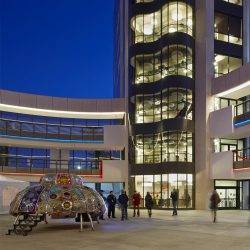To provide the best experiences, we use technologies like cookies to store and/or access device information. Consenting to these technologies will allow us to process data such as browsing behaviour or unique IDs on this site. Not consenting or withdrawing consent, may adversely affect certain features and functions.
The technical storage or access is strictly necessary for the legitimate purpose of enabling the use of a specific service explicitly requested by the subscriber or user, or for the sole purpose of carrying out the transmission of a communication over an electronic communications network.
The technical storage or access is necessary for the legitimate purpose of storing preferences that are not requested by the subscriber or user.
The technical storage or access that is used exclusively for statistical purposes.
The technical storage or access that is used exclusively for anonymous statistical purposes. Without a subpoena, voluntary compliance on the part of your Internet Service Provider, or additional records from a third party, information stored or retrieved for this purpose alone cannot usually be used to identify you.
The technical storage or access is required to create user profiles to send advertising, or to track the user on a website or across several websites for similar marketing purposes.
 To select, engage and retain the best talent, companies are going to have to break their entrenched bad habits, according to a new report from The Myers-Briggs Company. It claims that its Global Trends Report (registration) sets out how businesses can select the best employees, provide effective leadership and help their people to work together efficiently and harmoniously, despite a rapidly changing and increasingly complex business landscape. (more…)
To select, engage and retain the best talent, companies are going to have to break their entrenched bad habits, according to a new report from The Myers-Briggs Company. It claims that its Global Trends Report (registration) sets out how businesses can select the best employees, provide effective leadership and help their people to work together efficiently and harmoniously, despite a rapidly changing and increasingly complex business landscape. (more…)






























March 8, 2019
On International Woman’s Day – why advancing women is still not a business priority
by Sara Bean • Comment, Legal news, News, Workplace
It has probably not escaped your notice that today is International Woman’s Day, which for Workplace Insight means a plethora of studies on the topic of women/jobs/salaries and ways women might work differently to men. We’ve decided not to waste anyone’s time and ignored most of them (particularly the patronizing ones on how ladies are so intuitive) but managed to find a few kernels of information. First, the good news that women have doubled their share of top jobs at technology companies, pulling in higher salaries than men last year, according to executive search firm Odgers Berndtson. (more…)